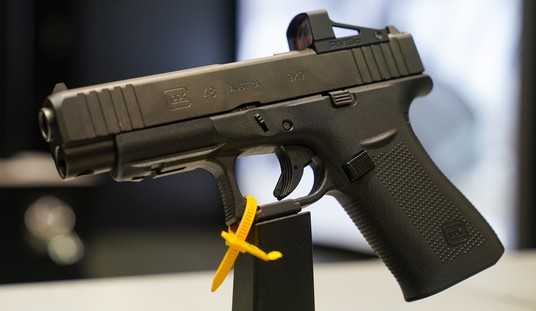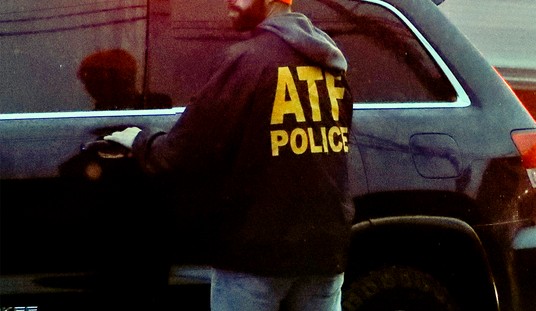The highest court in the state of Illinois heard oral arguments in a challenge to the state’s Firearms Owner ID card on Tuesday, and the upcoming decision has the potential to undo one of the state’s biggest gun control laws.
The case involves a woman in Wabash County, Illinois who lost her right to keep and bear arms after a misdemeanor domestic violence conviction. Shawna Johnson’s attorney says she didn’t have the money to fight the charge filed by an ex, and agreed to a plea deal to a lesser charge after the state’s attorney told her she would “maybe” lose her FOID card for a “short time”, but if that happened, it wouldn’t amount to a permanent revocation of her rights. Johnson agreed, and in 2001 was sentenced to time served and levied a fine of $50.
In 2010, Johnson applied for and received a new FOID card, only to have it revoked by the county sheriff in 2012 after he learned of the domestic violence misdemeanor conviction. Both federal law and state statutes in Illinois prohibit firearms possession by those convicted of domestic violence misdemeanors, but the federal law has a carveout for individuals who have had their civil rights restored. As it turns out, since Johnson never actually served any time, it became a legal question as to whether or not she had her civil rights restored, and possibly whether she had ever lost them in the first place. Lawyers for Johnson and the Illinois State police argued back and forth as the case wound its way through the court system for several years until a circuit court judge in Illinois ruled in her favor in October of 2018. As her attorney told the Illinois Supreme Court in a briefing on the case,
After carefully reviewing the facts and circumstances of Petitioner Shawna Johnson’s 2001 battery conviction and her life since then, the circuit court found that she was not likely to act in a manner dangerous to public safety and that granting her a FOID Card would not be contrary to the public interest. Thus, as a matter of Illinois law, Petitioner was entitled to a FOID Card but for one thing—a 2013 amendment to the FOID Act that prohibits a court from granting relief when it “would . . . be contrary to federal law.”
Because Petitioner’s 2001 misdemeanor conviction concerned her former husband, the federal domestic violence prohibition convictions catches her in its sweep.
Bizarrely, it would not catch her if she had served even an hour in jail, nor would it catch her if she had pleaded guilty to a non-forcible felony. But, as someone who pleaded guilty to only a misdemeanor and received only a minimal (non-custodial) sentence, Petitioner faces a ban on her ability to keep and bear arms that, in Illinois, is perpetual—at least as construed by the federal government.
The circuit court in Illinois found that a permanent ban loss of Johnson’s right to keep and bear arms violates the Second Amendment, and her attorney argues that the Illinois State Supreme Court, by affirming “the circuit court’s judgment on the ground that the restoration of Petitioner’s right to keep and bear arms under Illinois law is a restoration of her ‘civil rights’ so as to make the federal prohibition inapplicable.”
In other words, if the state restores her right to keep and bear arms, then the federal ban on her gun possession is null and void, or at least that’s the argument.
Johnson’s attorney says if the Court does decide there’s a constitutional issue at stake here (and it appears at least some of the judges were leaning in that direction during Tuesday’s oral arguments), they can address it in a couple of different ways. The court could narrowly decide that Shawna Johnson’s FOID card revocation is unconstitutional because “the State has failed to show a sufficient justification for applying the ban in the circumstances presented.”
The court could also strike down the entire FOID card requirement as unconstitutional, as Johnson’s attorney argues.
The Second Amendment elevates the core right to armed home defense “above all other interests.” Yet the State of Illinois, unlike almost every other State in the Nation, requires virtually all of its citizens to possess a government license to exercise this absolute fundamental right. Just as the State could not require its citizens to obtain a license to read bedtime stories to their children or say family prayers, the State cannot require its citizens to obtain a license to exercise this similarly fundamental constitutional right.
The state of Illinois, in the meantime, has introduced a last-minute argument of its own; that the U.S. Attorney General should be a party to the litigation as well, since the federal prohibition on domestic violence misdemeanors is one of the issues raised in the case. Johnson’s attorney correctly called that argument a “red herring”, and noted that the Attorney General didn’t issue or revoke Johnson’s FOID card, and has no interest in Johnson’s case. Instead, FOID cards are the responsibility of the Illinois State Police, and the attempt to draw the federal government into the case is a desperate attempt to avoid judicial scrutiny by the State Supreme Court.
The Johnson case is actually the second case involving a challenge to the state’s FOID card requirement heard by the state Supreme Court in recent months. Back in September, judges heard oral arguments in a case called People v. Brown involving a woman who was otherwise legally entitled to possess the single shot, bolt-action .22 rifle in her home, but didn’t have a FOID card, which led to her arrest. Vivian Brown was arrested for violating the state’s FOID Act, but a circuit court judge ruled that requiring possession of a FOID card in order to keep arms inside of the home was a violation of Brown’s Second Amendment rights.
Shawna Johnson’s and Vivian Brown’s cases both provide the Illinois Supreme Court with the opportunity to undo the damage done to the right of the people to keep and bear arms in the state through the Firearms Owner ID laws, but if they end up siding with the State and uphold the FOID card requirements, it’s likely that one or both of these cases will be appealed to the U.S. Supreme Court. On the other hand, if the state Supreme Court does strike down the firearms owner registration requirement, don’t be surprised if the case goes no further. Gun control advocates have been desperate to avoid Supreme Court review of any gun laws, and it’s highly unlikely they’d go along with any effort that could result in a ruling striking down gun licensing laws in every state in the union.
It will likely be several more months before the Illinois Supreme Court issues its ruling in the Johnson or Brown cases. In the meantime, lawmakers at the state capitol in Springfield are trying to make the FOID card even more onerous for gun owners by requiring fingerprints for all who apply for government permission to exercise a right.









